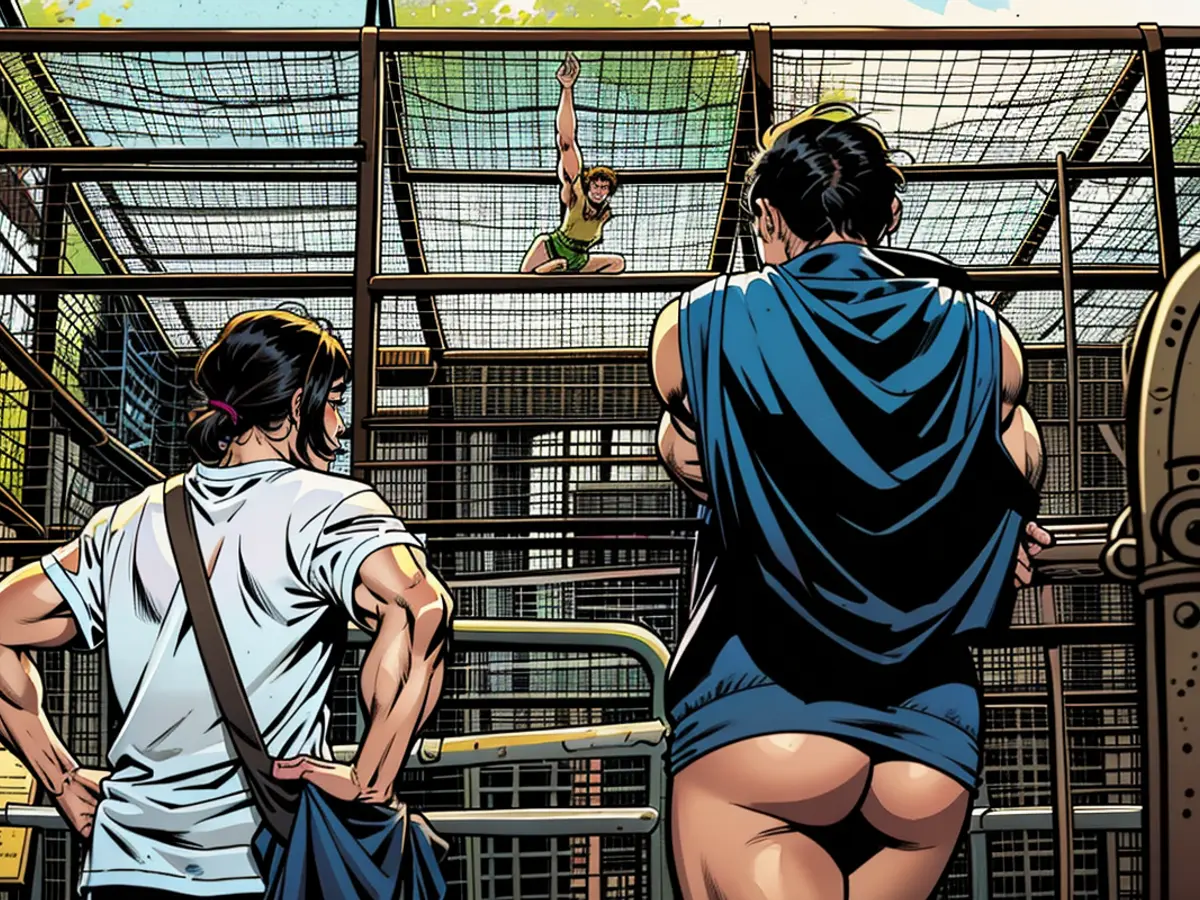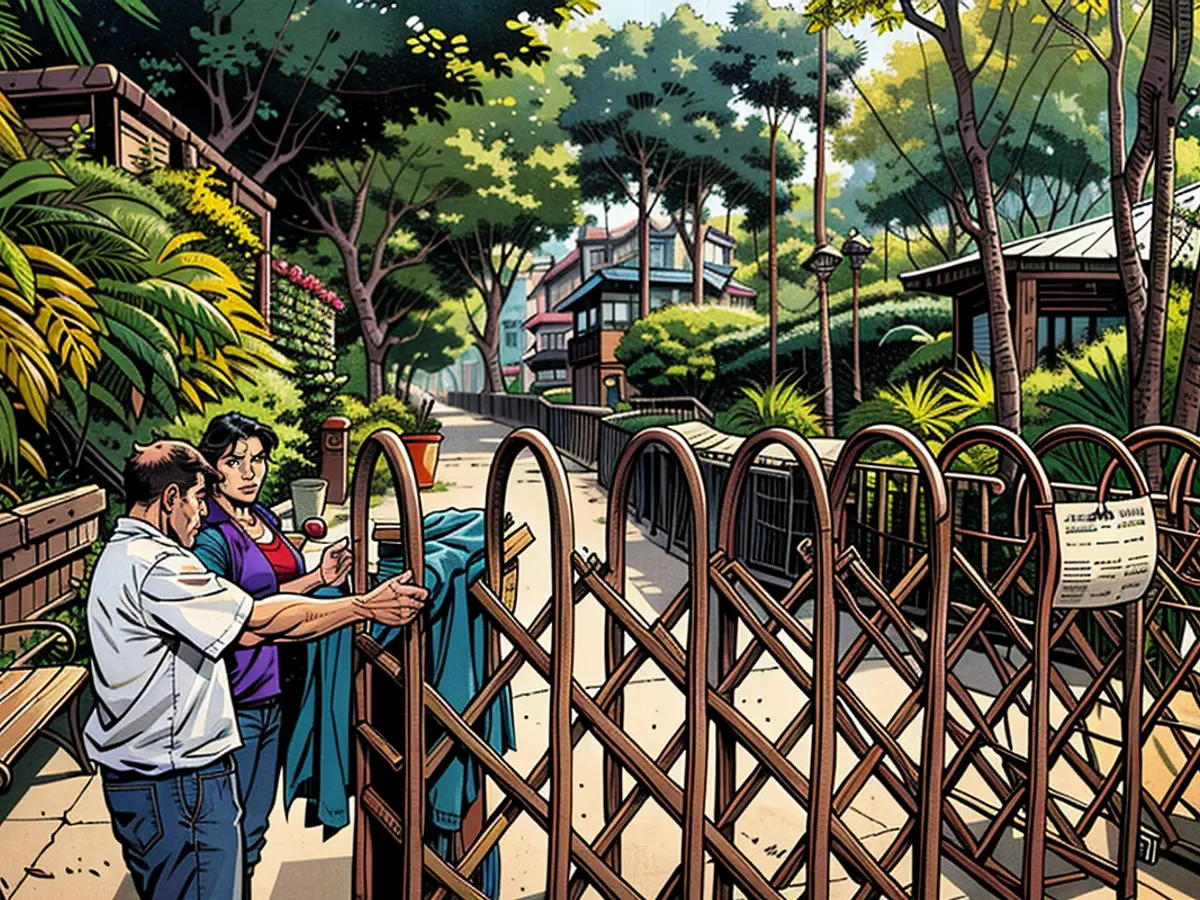Monkeys succumbed to soil-related illness at Hong Kong's zoo, authorities report.
A section of the zoo, established in 1860 and the oldest park in Hong Kong, has been closed since October 14 following reports of monkey fatalities by authorities.
Situated in five separate enclosures, the deceased primates included the De Brazza species, as well as a common squirrel monkey, cotton-top tamarins, and white-faced sakis.
Authorities declared that nine monkeys succumbed to sepsis after contracting melioidosis. Postmortem examinations revealed a substantial amount of bacteria that triggers melioidosis in the monkeys' organs, which was likely sourced from the soil surrounding their habitat, they stated.
Additional investigations are required to pinpoint the cause of death of the most recent two monkeys.
Kevin Yeung, the city's culture and tourism minister, disclosed to local public broadcaster RTHK that the zoo workers needed to excavate the soil close to the monkeys' living space.
The employees were suspected of carrying contaminated soil into the cage via their shoes, according to him.
“We have isolated the entire mammal segment temporarily, so there will be no interaction among normal people and the animals,” he mentioned.
The bacteria is typically prevalent in moist clay soil. Although it can influence both humans and animals, it is unlikely to transfer from animals to humans, authorities explained.
The zoo, situated above the city's financial centre and near government house, includes roughly 158 birds, 70 mammals, and 21 reptiles in about 40 displays.
The zoo, located in Asia, is a significant attraction in Hong Kong, known for being the oldest park in the city. Due to the global spread of zoos, this particular case of monkey fatalities has raised concerns in the world community.








